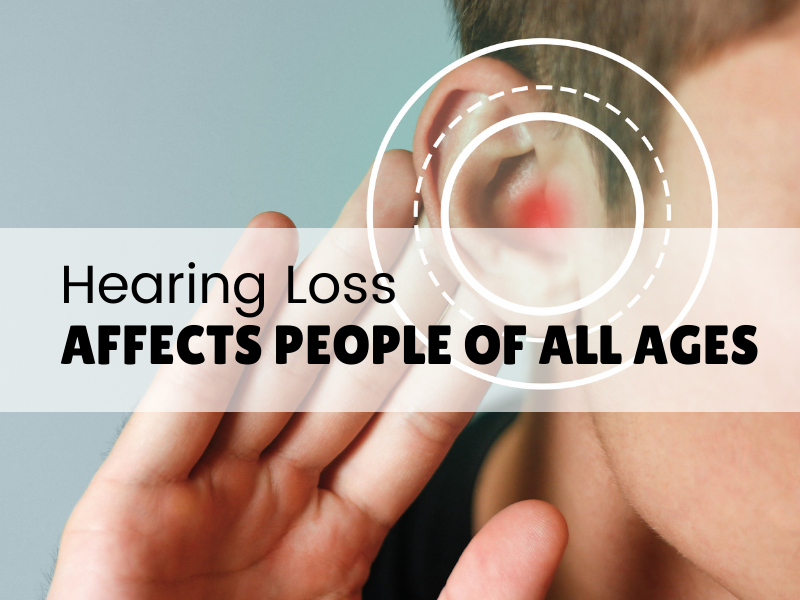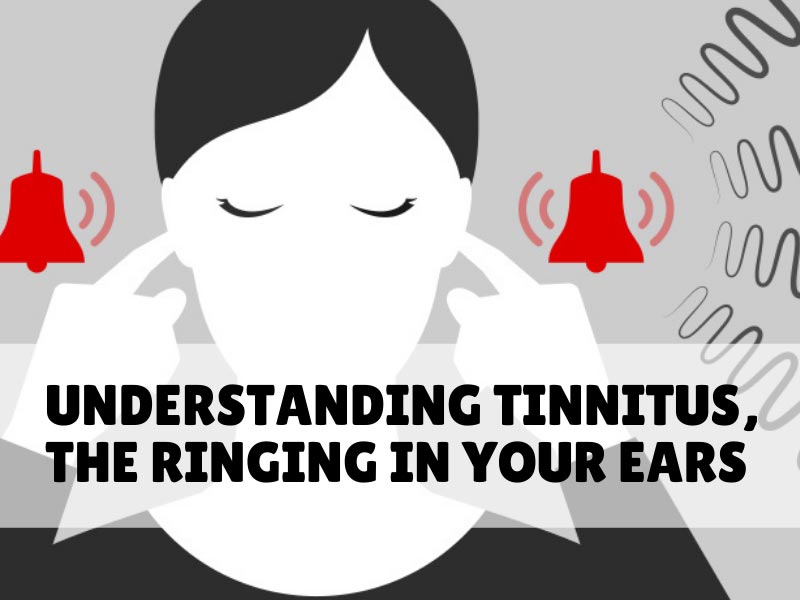When Should I See An ENT Doctor?
 You should see an ear, nose, and throat (ENT) doctor if you have any symptoms or concerns related to your ears, nose, or throat such as:
You should see an ear, nose, and throat (ENT) doctor if you have any symptoms or concerns related to your ears, nose, or throat such as:
- If you have chronic or recurring ear infections
- If you have difficulty hearing or experience hearing loss
- If you have frequent sinus infections or nasal congestion
- If you have a hoarse voice or difficulty speaking
- If you have chronic allergies or sinus problems
- If you have a lump or growth in your neck or throat
- If you have chronic snoring or sleep apnea
- If you have difficulty swallowing or experience pain when swallowing
- If you have chronic bad breath or a bad taste in your mouth
What are the most common conditions and symptoms treated by ENT doctors?
The ear, nose, and throat are all parts of the body that are susceptible to a wide range of conditions. Overall, the most common ear, nose, and throat conditions are typically caused by infections or allergies, and can cause a range of symptoms.
Some of the most common ear, nose, and throat conditions include:
Ear Infections
Sinus Infections
Tonsillitis
Allergies
Nasal Polyps
Laryngitis
Sore Throat
These are one of the most common ear conditions, and they can affect people of all ages. Ear infections can cause symptoms such as ear pain, hearing loss, and fluid drainage from the ear. Symptoms of ear infections can vary depending on the type of infection and the location of the infection within the ear and can include:
- Ear pain: This is the most common symptom of ear infections, and can range from a dull ache to a sharp, shooting pain.
- Hearing loss: Ear infections can cause temporary hearing loss, which can make it difficult to hear or understand speech.
- Fluid drainage from the ear: Ear infections can cause fluid to build up in the ear, which can then drain out of the ear. This fluid may be clear or contain pus or blood.
- Fever: Ear infections can sometimes cause a low-grade fever, which can be accompanied by other symptoms such as chills and body aches.
- Ear congestion: Ear infections can cause a feeling of fullness or pressure in the ear, which can make it difficult to hear.
- Dizziness or balance problems: Ear infections can affect the balance organs in the inner ear, which can cause dizziness or problems with balance.
Also known as sinusitis, this is a common condition that causes inflammation and swelling of the sinuses. Symptoms of sinus infections can include headache, nasal congestion, and facial pain. Symptoms of sinus infections can include:
- Headache: Sinus infections can cause a dull or throbbing headache, which is often worse in the morning or when bending over.
- Nasal congestion: Sinus infections can cause congestion or blockage of the nasal passages, which can make it difficult to breathe through the nose.
- Facial pain or pressure: Sinus infections can cause pain or pressure in the cheeks, forehead, or between the eyes. This can often be worse when bending over or lying down.
- Thick, yellow or green nasal discharge: Sinus infections can cause an increase in mucus production, which can then drain from the nose. This discharge may be thick and yellow or green in color.
- Fever: Sinus infections can sometimes cause a low-grade fever, which can be accompanied by other symptoms such as chills and body aches.
- Bad breath: Sinus infections can cause a bad odor to develop in the nose, which can then be exhaled through the mouth.
This is an infection of the tonsils, which are located in the back of the throat. Symptoms of tonsillitis can include sore throat, difficulty swallowing, and swollen glands in the neck:
- Sore throat: Tonsillitis can cause a sore, scratchy, or painful throat. This can make it difficult or painful to swallow.
- Swollen tonsils: Tonsillitis can cause the tonsils to become swollen and inflamed, which can make them visible in the back of the throat.
- Difficulty swallowing: Tonsillitis can cause difficulty or discomfort when swallowing, which can make it difficult to eat or drink.
- Swollen glands in the neck: Tonsillitis can cause the glands in the neck to become swollen, which can make them visible or palpable.
- Hoarseness or loss of voice: Tonsillitis can cause the voice to become hoarse or whispery, or it can cause the person to lose their voice completely.
- Fever: Tonsillitis can sometimes cause a fever, which can be accompanied by other symptoms such as chills and body aches.
Allergies can affect the ears, nose, and throat, causing symptoms such as sneezing, itching, and congestion. Allergies are a common condition that occurs when the body’s immune system reacts to certain substances in the environment. Symptoms of environmental allergies can include:
- Sneezing: Allergies can cause frequent sneezing, which can be accompanied by a runny or stuffy nose.
- Itching: Allergies can cause itching of the nose, eyes, throat, or skin, which can be a frustrating and uncomfortable symptom.
- Nasal congestion: Allergies can cause congestion or blockage of the nasal passages, which can make it difficult to breathe through the nose.
- Watery eyes: Allergies can cause the eyes to become watery and irritated, which can make them feel itchy and uncomfortable.
- Coughing: Allergies can cause coughing, which can be caused by postnasal drip or by irritation of the throat.
- Fatigue: Allergies can cause fatigue, which can be caused by difficulty sleeping due to symptoms such as congestion or itching.
Nasal Polyps
These are non-cancerous growths that can develop in the lining of the nose or sinuses. They can cause symptoms such as congestion, difficulty breathing, and loss of sense of taste and smell. They are typically diagnosed during a physical examination by an ear, nose, and throat (ENT) doctor.
During the examination, the doctor may look inside the nose and sinuses using a lighted instrument called a nasal endoscope. This allows them to see any growths or abnormalities in the nasal passages. The doctor may also perform a physical examination of the face and neck, and may use a stethoscope to listen to the person’s breathing and check for any abnormal sounds.
In addition to a physical examination, the doctor may also order other tests to confirm the diagnosis of nasal polyps and to rule out other possible causes of the symptoms. These tests may include imaging tests such as a CT scan or MRI, or allergy testing to identify any substances that the person may be allergic to.
This is an inflammation of the larynx, or voice box, which can cause hoarseness or loss of voice. Symptoms of laryngitis can include:
- Hoarseness: Laryngitis can cause the voice to become hoarse, raspy, or whispery. This can make it difficult to speak or be heard.
- Loss of voice: In some cases, laryngitis can cause the person to lose their voice completely.
- Dry throat: Laryngitis can cause the throat to feel dry or scratchy, which can be uncomfortable.
- Sore throat: Laryngitis can cause a sore or painful throat, which can make it difficult or uncomfortable to swallow.
- Cough: Laryngitis can cause coughing, which can be caused by irritation of the larynx or by postnasal drip.
- Fatigue: Laryngitis can cause fatigue, which can be caused by difficulty sleeping due to symptoms such as hoarseness or sore throat.
Sore Throat
A sore throat is a common condition that can be caused by a variety of factors, including infections, allergies, and irritants. Symptoms can include pain or discomfort when swallowing, and swollen glands in the neck. Symptoms of a sore throat can include:
- Pain or discomfort when swallowing: A sore throat can cause pain or discomfort when swallowing, which can make it difficult to eat or drink.
- Swollen glands in the neck: A sore throat can cause the glands in the neck to become swollen, which can make them visible or palpable.
- Red or swollen tonsils: A sore throat can cause the tonsils to become red or swollen, which can be visible in the back of the throat.
- Fever: A sore throat can sometimes be accompanied by a fever, which can be accompanied by other symptoms such as chills and body aches.
- Dryness or scratchiness: A sore throat can cause the throat to feel dry or scratchy, which can be uncomfortable.
- Bad breath: A sore throat can cause bad breath, which can be caused by bacteria or debris in the throat.
Schedule Your Visit
If you are experiencing symptoms that are affecting your quality of life, please reach out to Port Huron ENT and ask about making an appointment with one of our ear, nose, and throat providers.





